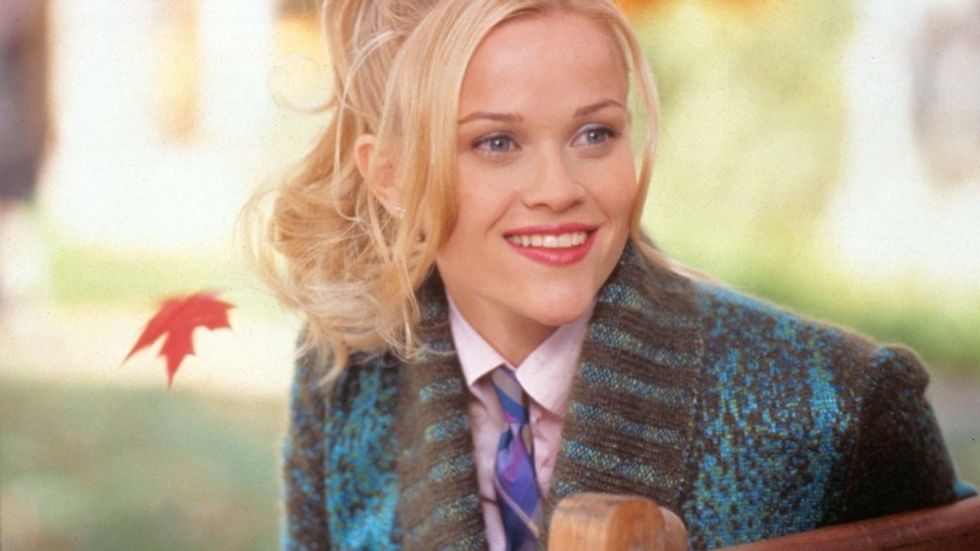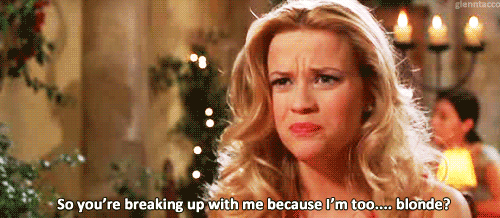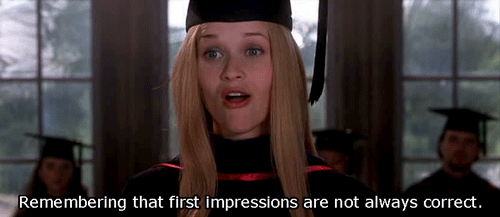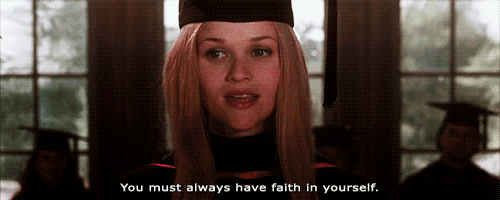With the recent announcement of a potential Legally Blonde 3 film, it isn't difficult to recount the infamous journey of the franchise's protagonist, Elle Woods, who, following the original Legally Blonde film in 2001, became a symbol of feminine power, wit, and class. By 2018, Elle Woods has become so iconic that the reason her ex-beau Warner broke up with her in the first place seems all the more outlandish: "I need to marry a Jaclyn. Not a Marilyn." Or, as more concisely put in Legally Blonde: the Musical, "Less of a Marilyn, more of a Jackie."
As laughable as this moment is, the principle behind Warner's ill-founded breakup still stands a bit too strongly in our culture-- that is, the idea that traditional perceptions of "beauty" and "brains" are somewhat mutually exclusive, or that we may find a niche in one but not the other. Or, worse, that we're allowed to take someone less seriously as an intellectual based on their looks, or disregard the femininity or aesthetics of someone outwardly intellectual.
All too often, women are placed into categories according to whether or not they are considered more "girly" or more "bookish" as if these generalized labels are polar opposites, or that there are two distinct categories with which to classify women. Even if done in jest, it's, at best, unfair and unrealistic for anyone to arbitrarily decide whether a woman is a Daphne or a Velma, a Hailey or an Alex, a Darcy or a Rachel, a Madge or a Millie, or, as Warner himself presumed, a Marilyn or a Jackie.
This paradigm tends to breed unnecessary envy and spite between women-- friends, strangers, sisters. We're left wondering if we're the "pretty sister" or the "smart sister," or Warner's ultimatum of Marilyn Monroe or Jackie Kennedy. We discount that both "the Marilyn" and "the Jackie" are unique, charming, strong, witty, and beautiful. We compare ourselves to one another and pine after whatever beauty or brains we feel we somehow lack or see one or the other as an asset to be relied on.
At the end of the day, there is no hard-and-fast rule that says someone can only be good at or be seen as one thing. There is no universal "look" of the average model, actress, engineer, or lawyer. No one should be forced to invest more in one than the other, and no singular person's understanding of either should serve as a universal definition.
So, forget the infamous beauty vs. brains debate.
Don't tell yourself you'd be happier or more successful if you looked or acted more like someone else. There's already enough unnecessary judgement and sexism in the world to deal with. We owe it to ourselves to, at the very least, perceive ourselves and one another in a manner that reflects our true complexity.













































